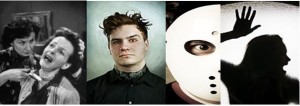Do you suspect a loved one or someone you know may suffer from a psychotic disorder?
Psychotic disorders such as schizophrenia are a group of serious illnesses that affect the mind. These illnesses alter a person’s ability to think clearly, make good judgments, respond emotionally, communicate effectively, understand reality, and behave appropriately. When symptoms are severe, people with psychotic disorders have difficulty staying in touch with reality.
Good news is, even the most severe psychotic disorders usually are treatable! So all you need to do is seek for a doctor’s help and most importantly get an accurate diagnosis; if you are not content with your current doc. then go to another one! Being healthy must be always on top of your list.
Now let’s find out a bit more about the different types of psychotic disorders out there:
- Schizophrenia: People with this illness have changes in behavior and other symptoms such as delusions and hallucinations.
- Brief psychotic disorder: People with this illness have sudden, short periods of psychotic behavior, often in response to a very stressful event, such as a death in the family. Recovery is often quick.
- Delusional disorder : A false, fixed belief involving real-life situations that could be true, such as being followed, being conspired against, or having a disease. These delusions persist for at least one month.
- Substance-induced psychotic disorder: This condition is caused by the use of or withdrawal from some substances, such as alcohol and crack cocaine, that may cause hallucinations, delusions, or confused speech.
- Psychotic disorder due to a medical condition: Hallucinations, delusions, or other symptoms may be the result of another illness that affects brain function, such as a head injury or brain tumor.
- Paraphrenia: This is a type of schizophrenia that starts late in life and occurs in the elderly population.
The major symptoms of a psychotic disorder are hallucinations and delusions; so let’s define those concepts shall we?
Hallucinations are unusual sensory experiences or perceptions of things that aren’t actually present; such as, hearing voices.
Delusions on the other hand, are false beliefs that are persistent and organized. For example a person who is certain his or her food is poisoned, even if it has been proven that the food is fine.
Remember keep an eye for symptoms and although this can vary from person to person and may change over time, no one is exempt!







Join the Conversation